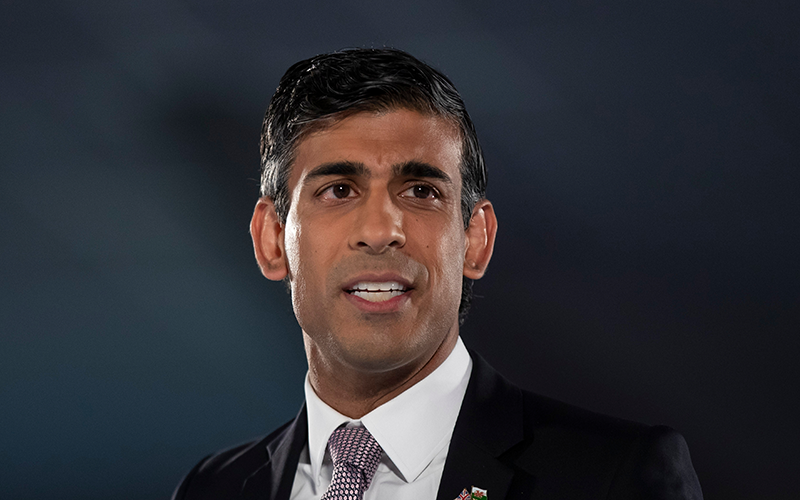This week’s Digest comes to you from Birmingham – specifically the NFU conference where Rishi Sunak attempted to curry favour with farmers by offering them cash. But not enough of it.
You’ve probably heard it didn’t go too well for Sunak at the ICC. That he began his mid-morning speech – the first by a prime minister at this conference for 15 years – with a “good afternoon” suggested he was hoping it was over before it began. He managed to use up another few minutes by asking everyone to thank Minette Batters, the outgoing NFU president, again (she’d just got a standing ovation). That was pretty much the only applause the prime minister mustered.
He tried, rather desperately, to convince everyone he was a farmer at heart (because his neighbour is a dairy producer, he once milked a cow (badly) and his mother ran a pharmacy). He announced more money for farmers, including the “largest ever” grant scheme, an improved sustainable farm incentive (SFI) and £15m to redistribute food at the farm gate which cannot be used commercially (more than 7% of food harvested is wasted).
“We’ve got a plan to support British farming,” Sunak said, in a speech that in one breath painted a bucolic image of the UK agriculture sector, but in the next exposed the deep fault lines that run through the country’s food system. Unfair trading, lack of resilience, high levels of pollution, inflation, an ageing (and angry) workforce, high greenhouse gas emissions, and so on. The prime minister said he couldn’t imagine what such volatility is like.
Of course, none of this was the fault of his government. Vladimir Putin had set off a “food timebomb”; there is also climate change, with droughts and floods (which is the Environment Agency’s fault, according to producers); while replacing the Common Agricultural Policy (CAP) was never going to be easy. Fear not, though, because the government has that ‘plan’. Where it is, nobody knows. There is going to be an annual food security index, though. Intrigued? So was everyone else (including some Defra officials apparently) because there were no further details available. It will become statutory “when time allows”, the prime minister said.
Time, of course, is not on Rishi’s side: the Conservatives currently hold 96 of the 100 most rural parliamentary seats but could lose more than half, reported The Guardian. Sunak managed to lose the other half when he said farmers do what they do out of love not money.
Minette Batters, in a stirring opening speech, demanded more money: £4.5bn to be precise (how that figure is calculated isn’t quite clear), or a little under double what the government has made available. Sunak laughed at Batters’ four billion. Few others did.
Evidence of just how much lower Sunak sunk in the eyes of farmers came in the (actual) afternoon when Alan Lovell, chair of the Environment Agency, which many believe is failing the farmers ruined by floods, seemed to come away with his reputation if not in tact but certainly not in tatters. Following a 30-minute grilling from Batters (who was oddly soft on Sunak during their Q&A) Lovell was sufficiently emboldened to call on the hundreds of farmers gathered here to buck up their ideas because their record on pollution stinks.
“I’ll take my medicine on flooding [… but] please take yours,” he said. Earlier he had produced an “uncomfortable slide” showing that farms account for 40% of river pollution, compared with 36% from water companies. The latter figure should come down he said as companies are forced into action following the sewage scandal, and that means attention will increasingly turn to farmers.
Arguably it already is. Pollution from intensive poultry farms is being blamed for feeding algal blooms that are choking life from the River Wye, for example. Campaigners at River Action are taking the Environment Agency to court over the issue. The catchment is in a “death spiral” they say. Sunak can at least imagine that.
Monday’s premium will include much more from the NFU conference. One of our other stories this week comes from the Packaging Innovations conference (which also took place in Birmingham this week), where companies were told that specific sustainability claims help sales more than vague ones. It also appears the single-use plastic bans are not being enforced as rigorously as some would like. And we also detail the failure of the flagship government reformulation programme to deliver calorie reductions.













